Amlan Bhushan
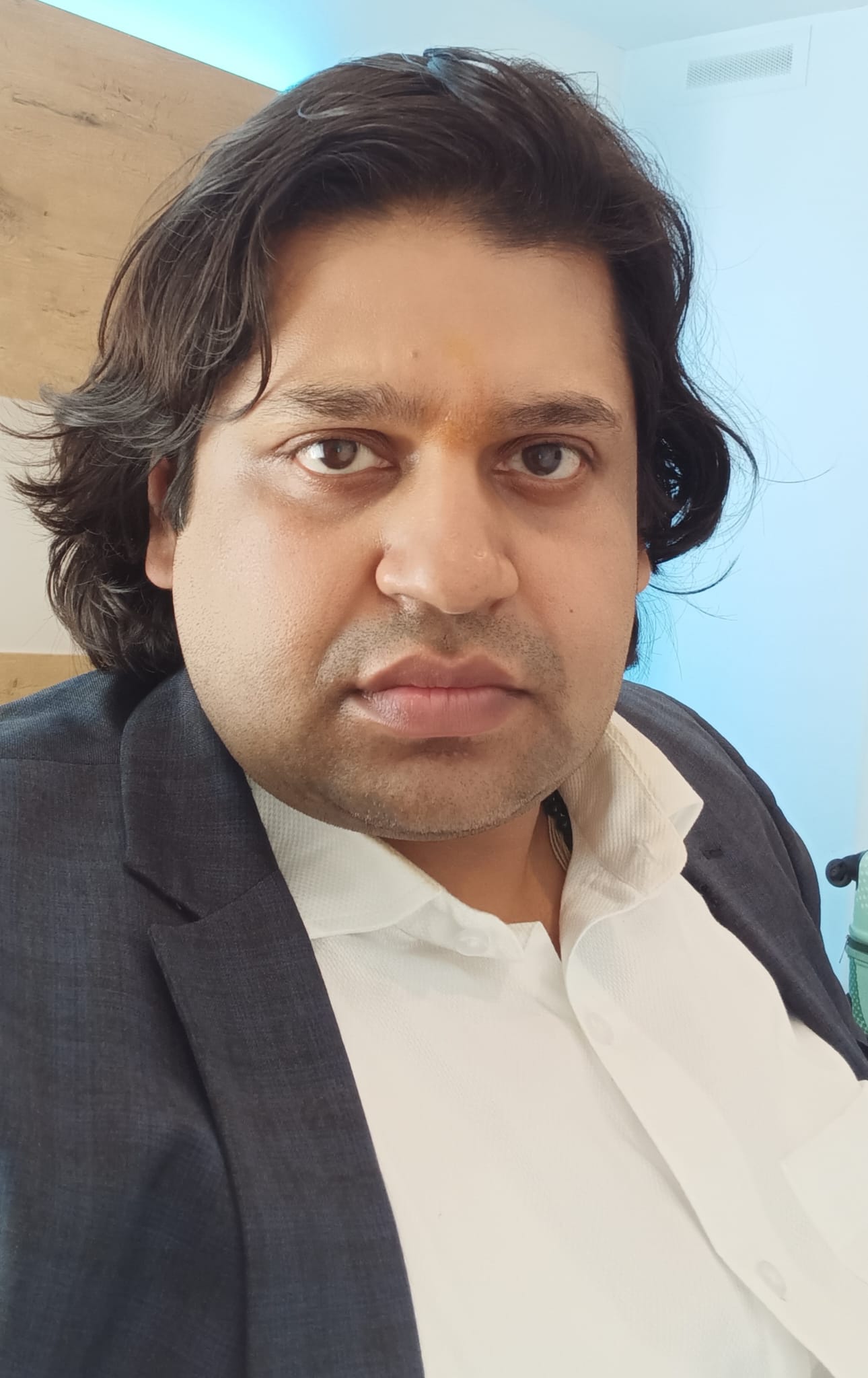


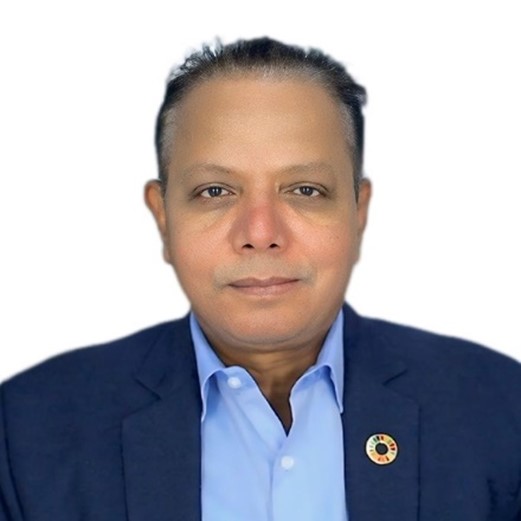
Dr. Sanjay K. Srivastava is the S. Radhakrishnan Chair Professor at the National Institute of Advanced Studies (NIAS).
Until July 2025, he served as Chief of Disaster Risk Reduction at the UN Economic and Social Commission for Asia and the Pacific (UNESCAP), leading regional initiatives linking science, policy, and technology for resilience. He directed the Asia-Pacific Disaster Report and the Risk and Resilience Portal, supporting national DRR and adaptation strategies.
Previously, he held leadership roles at ISRO and the SAARC Disaster Management Centre, advancing the use of space-based technologies for disaster management.
A recipient of ESCAP Innovation Awards (2022, 2024) and ISRO’s Team Excellence Award, he has authored 150+ publications and contributed to major UN and WMO climate reports. He holds a Ph.D. in Remote Sensing and an Executive Certificate in Digital Transformation from UC Berkeley.
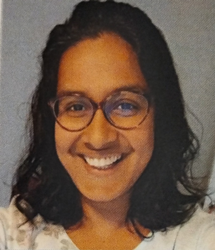
Mr Yadav has served as Distinguished Scientist and Group Director in Bhabha Atomic Research Centre. He has experience of more than four decades. He is an expert in the field of Nuclear Engineering, Design Development and commissioning of Nuclear Systems and Project Management. He has developed many critical technologies to make India self-reliant. Shri Yadav has played a leadership role towards project of National importance.
Mr Yadav is BE(Mechanical) 1975 from the University of Roorkee (since IIT Roorkee), ME (Mechanical) 1982 from IISc. He has undergone one-year training in Nuclear Science and technology in the 19th Batch of BARC Training School.
He is a recipient of several awards, including the Distinguished Alumni award 2020 from IIT Roorkee.
He is a Fellow of the Indian Academy of Engineering.
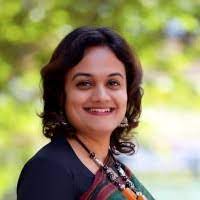
Dr. Deepti Navaratna is a musician and neuroscientist interested in an alchemy of research and performance. After several years of neuroscience research at Harvard Medical School, USA, her current research interests span neuroscience, arts and humanities; exploring new frontiers of interdisciplinary knowledge such as cognitive hermeneutics, neuropsychology and empirical musicology. She is a Chevening Clore Fellow (2021-23), recognized by the UK Government as one of the most creative artists and dynamic leaders across the globe.
Until, recently she served as the Regional Director, Indira Gandhi National Centre for the Arts, Ministry of Culture, Government of India, Bengaluru, India. She directed the centre’s research, academic and outreach activities at the intersection of science and humanities - with a focus on Indian knowledge systems. Under her leadership the centre was deemed a ‘Centre for Excellence’ under the Bangalore University and initiated a one-of-a-kind Post Graduate Diploma in Manuscriptology and Paleography. She served as the Chairman, Board of Studies, IGNCA Bangalore for curriculum development across music research, manusciptology and paleography. As an arts curator, she has curated over a thousand academic/outreach events
such as seminars, symposiums and public engagements.
While at IGNCA she was instrumental in the scientific documentation of several vanishing art forms such as the Kinhal art, Kerala Mural paintings and Ayyanar Terracota Votive Art. In 2018, she created the Raaga Laboratory, a first-of-its-kind laboratory studying Indian music from neuroscientific and cultural perspectives. The laboratory undertakes interdisciplinary research in Cognitive Musicology, Science of Raagas, Chants and Rhythm, Brain body computer interfaces for special needs and performance and Hermaneutics of Indian Music Cognition – study of texts of Nada Yoga & Natyashastra.
Deepti holds a doctorate degree in Neuroscience and has authored over twenty original scientific research papers, book chapters to her credit.
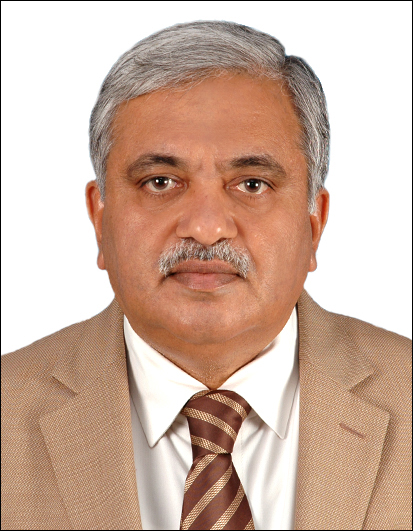
Vinay Kumar Dadhwal is currently Indira Gandhi Chair Professor of Environmental Sciences in the School of Natural Sciences and Engineering at NIAS. Prior to joining NIAS, he had a distinguished 38-year career (1983-2021) in the Indian Space Research Organisation (ISRO) and Department of Space (DOS), holding leadership positions as Director, Indian Institute of Space Science and Technology (IIST/DOS, Thiruvananthapuram, 2016-21), Director, National Remote Sensing Centre (NRSC/ISRO, Hyderabad, 2011-16) and Dean, Indian Institute of Remote Sensing (IIRS/ISRO, Dehradun, 2004-10) and held concurrent positions at UN Centre of Space Science and Technology Education in the Asia Pacific (UN CSSTE-AP, Dehradun, 2004-10).
Vinay Kumar Dadhwal was born and educated in Delhi where he graduated in Botany from Hansraj College (Delhi University, 1976) and completed Master of Science (1978) and PhD (1983) in Plant Physiology from Indian Agricultural Research Institute (IARI, New Delhi) and started his career in remote sensing applications at Space Applications Centre (SAC/ISRO, Ahmedabad, 1983).
Early in his career Vinay developed a methodology for use of remote sensing for crop identification, and crop mapping and later expanded it to yield modelling and crop production forecasting at district to state and national scale under a major program funded by the Department of Agriculture and Cooperation (DAC), Government of India. He has extensively worked with EO data for applications in land transformation, land surface modelling, deforestation, geo-hazards and hydro-meteorological disasters, to name a few. He was Project Director for the National Carbon Project (NCP) under ISRO Geosphere-Biosphere Program(IGBP), a multi-institutional national effort that established an observation network of carbon flux and atmospheric CO2, and geospatial mapping of national forest biomass and soil organic carbon in high detail. His extensive research is described in more than 300 co-authored peer-reviewed journal publications. His current research at NIAS covers various dimensions of assessment and modelling of the terrestrial carbon cycle of India.
During his tenure at various institutions major long-term programs were initiated, including a satellite-based education program hosted by IIRS for PG students nationally, expanded EO products and services from NRSC for land resources, near real-time flooded extent and forest fires, climate information products, digital elevation models and ocean applications. Establishment of spacecraft and payload development laboratory and space technology incubator at IIST. As a science leader, Vinay has extensive experience in bilateral and multi-lateral space cooperation, including as a member/leader of the Indian delegation to the UN Committee on Peaceful Uses of Outer Space (UN COPUOS) from 2012 to 2016 and was Chairman of the 53rd Session of Science and Technology Subcommittee (STSC) of UNCOPUOS in 2016.
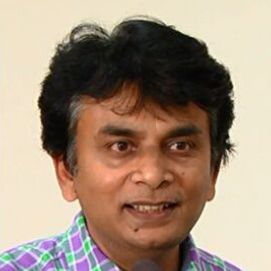
Prof D. Suba Chandran is the Dean of the School of Conflict and Security Studies at NIAS. Within the School, he heads two Programmes - Conflict Resolution & Peace Research; and Science, Technology and International Relations.
Pakistan Reader: Pakistan is his primary area of research interest; currently, he is working on a manuscript looking at 75 years of Pakistan. He teaches a course on contemporary Pakistan. He has been a regular visitor to Pakistan, and has been part of numerous track-II dialogues with Pakistan; he has also worked and published with scholars from Pakistan.
Peace and Conflict Research: Besides Pakistan, he works on issues relating to peace and conflict; he is currently researching on two primary areas – “Conflict Peripheries” trying to find why most of the conflict regions are situated in geographic corners, and on “Peace Gap” trying to find why peace does not prevail, despite the end of violence and conflict. He leads the International Peace Research Initiative (IPRI) at NIAS. He is also the regional representative of the Global Partnership to Prevent Armed Conflict (GPPAC). He teaches an online course on peace research.
Global Politics and Area Studies: He coordinates the NIAS Global Politics initiative, which looks at the contemporary world order, and four area studies – Pakistan, Europe, Africa and Maritime. In the long run, the area studies are expected to branch out into independent disciplines. He also teaches an online course on “Contemporary World Affairs.”
He works with a young, colourful and an extremely dedicated team who leads the research on area studies relating to Pakistan, Africa, Europe, Sri Lanka and Myanmar, and issues relating to Peace & Conflict, Arctic, Space, and the Himalayas. His team coordiantes “Global Politics Young Voices (GPYV)” an exclusive network of young scholars, and take the lead in publishing the following at NIAS: Pakistan Reader Evening Brief (Daily), Pakistan Weekly, Europe Daily Brief, Europe Monitor (Monthly), Africa Weekly, Conflict Weekly, and The World This Week. Together, they coordinate the “Young-IPRI” network, aimed at bringing young scholars working on issues relating to peace and conflict on a common platform.
IR Networks: He coordinates three academic networks – the International Studies Network Bangalore (ISBN), International Peace Research Initiative (IPRI), and Maritime Studies. Academic institutions from Goa, Bangalore, Chennai and Pondicherry are a part of the above networks.
Science Diplomacy: He also leads the “Science Diplomacy” initiative within the institute, aimed at bringing S&T and International Relations together. He coordinates the BRICS-Young Scientists’ Forum.
He is an Associate at the Pakistan Study Research Unit (PSRU), University of Durham, UK. Earlier, he was a Visiting Fellow at the following places: the Department of Peace Studies, University of Bradford, UK; ACDIS, University of Urbana-Champaign; and the University of Jammu, J&K.

Joined NIAS on 2nd July 2004. Most significant research contribution: Pioneered the study on the societal implications of nanotechnology, and development of an atlas of Indian science. After an outstanding academic record in Loyola College, Chennai and the Indian Institute of Science, Bangalore, Prof. Ranganathan obtained his PhD from Cambridge University, UK in 1965. His academic career as an educator and researcher in metallurgy for the past four decades has been outstanding. His seminal research contributions have advanced our understanding of the structure of metals through 300 publications including books on Wootz steel and new geometries. He is currently Honorary and INAE Distinguished Professor at the Indian Institute of Science and Jawaharlal Nehru Centre for Advanced Scientific Research, Bangalore. His contributions have been recognised by fellowships to five academies and numerous awards. His interests at NIAS include materials heritage, an atlas of India in Science and Societal Impact of Nanotechnology
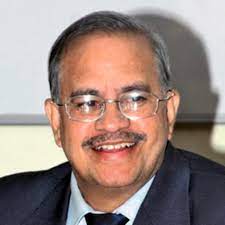
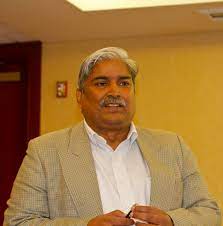
Prof. Dinesh Kumar Srivastava (born 1952) is presently Indian National Science Academy Senior Scientist and Honorary Visiting Professor at the National Institute of Advanced Studies, Bengaluru. He is now working on energy, environment, climate change, international collaborations, and science outreach along with a continuation of his research on quark-gluon plasma.
He obtained his graduation from Allahabad University in 1970 and joined the Training School of the Bhabha Atomic Research Center, Mumbai. He started working at the Variable Energy Project of Bhabha Atomic Research Centre in 1971 and retired as Director and Distinguished Scientist at the Variable Energy Cyclotron Center, Kolkata in 2016. Later, he continued there as Department of Atomic Energy (DAE) Raja Ramanna Fellow until 2019. He worked at National Institute of Advanced Studies, Bengaluru as a Homi Bhabha Chair Professor, during 2019-2023.
He is a Fellow of the National Academy of Sciences, India, and the Indian National Science Academy. He holds an Honorary Professorship at Amity University since 2019 and was an Emeritus Professor of Homi Bhabha National Institute.
He was awarded the Indian Nuclear Society’s award for “Outstanding Contribution to Teaching of Nuclear Sciences''. Prof. Srivastava received the Outstanding Referee Award by the American Physical Society (APS) in 2009 and was honoured with Lifetime Achievement Award by Chitkara University in 2012. He was also awarded the Homi Bhabha Lecturer Award by the Indian Physics Association and Institute of Physics UK in 2016, and the G. N. Ramchandran Award in Physical Sciences, from SASTRA University in 2024. He has delivered the Sir C. V. Raman Memorial Award Lecture at Calcutta University and the Prof Abdus Salam Memorial Award Lecture at Jamia Milia Islamia, New Delhi.
He is serving as an Editorial Board Member of Scientific Reports, and Physics (MDPI) Journals. He served as a Member of the Editorial Board of Physical Review C, from January 1, 2010, to December 31, 2012, and Pramana for about 10 years. He is President of the Indian Physical Society since 2014.
Dr Srivastava has worked at several prestigious labs and universities abroad, including KfK (now KIT) Karlsruhe, GSI Darmstadt, Lawrence Berkeley National Laboratory Berkeley, Brookhaven National Laboratory Upton New York, University of Minnesota, Duke University, McGill University, University of Cape Town, Bielefeld University, and the University of Frankfurt, etc.
His research interests include Electromagnetic probes of quark-gluon plasma (QGP), relativistic hydrodynamics, production, and propagation of charm quarks in QGP, transverse flow, etc. Earlier, he made important contributions in the theoretical understanding of elastic, inelastic, and break-up reactions of light nuclei. Prof. Srivastava has published more than one hundred and seventy papers and delivered more than 400 talks, seminars, and colloquia. He is the author of two collections of short stories and more recently three books of children’s literature in science.
His book on “Climate Change and Energy Options for a Sustainable Future” written with V. S. Ramamurthy was published by World Scientific Publishing Company (WSPC) in early 2021. Another one on “Art and Science of Managing Public Risks”, by V. S. Ramamurthy, Dinesh Kumar Srivastava, and Shailesh Nayak was also published by WSPC in early 2022. A new book exploring the importance of international collaborations, “Science Beyond Borders: International Collaborations in Basic Sciences”, written with V. S. Ramamurthy. Shailesh Nayak, and D. Suba Chandran is under publication by WSPC.